Some games choose to give you big advantages for completing a certain level or stage. Take for example the Legend of Zelda series: completing a dungeon will net you some extra health and a specific weapon or tool to assist in further exploration of the rest of the game’s world. Other titles give you small rewards throughout, like an RPG giving you additional HP and strength with every level you go up. Then there are dungeon crawlers like Castlevania which combine these two, giving you bigger and better weapons all the time, but not allotting anything major until you overcome a boss. Take that classic Castlevania: Symphony of the Night formula, and mix in the random dungeon generation of rogue-like games such as The Binding of Isaac, and mix in some Final Fantasy for flair, and you’ve got yourself Rogue Legacy, a remarkably fun and replayable title from 2014.
The borrowed elements are apparent and abundant, but before passing the game off as a clone of so many others, take the time to notice how well everything is executed. When you first star Rogue Legacy, you’ll jump into the dungeon and be threatened by damn near everything: even the paintings on the wall are ominous and scary. But after you as a player start to pick up on the mechanics, like the jumping arcs and timing, and the amount of hits certain foes take, you’ll start progressing further and further into the castle. Combine the player skill with the upgradeable avatar skill (via purchasing upgrades), and you have a formula that is a guaranteed winner.
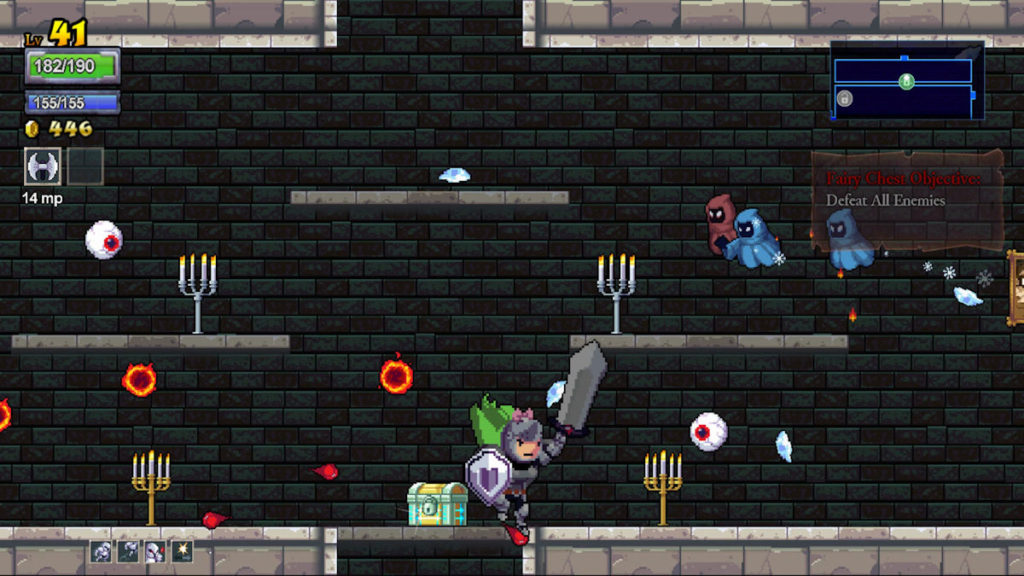
The premise of Rogue Legacy has you investigating a castle trying to find what is corrupting the area and causing all the death and monsters to roam. However, you are a single lineage of warriors, meaning when you die, that hero is permanently dead, and their brother, sister, cousin, or other family member becomes your new player character and continues their quest. While this is a fun concept, the best part are the traits your heroes randomly pass down to their kin. Each new player character has a handful of useful or not so useful abilities to aid them in their adventure. For example, some heroes have OCD, which means they have to break stuff like boxes and candles in the dungeon, but doing so replenishes a small amount of MP. Other traits give bonuses to speed, or make your character extremely tiny, allowing them to enter otherwise inaccessible areas. Seeing what traits were next was easily the most fun part about dying: it sucked that I had to start over, but maybe my new adventurer would be better than the previous.
Rogue Legacy is addictive for many of the reasons I’ve already pointed out: the randomness of the dungeon, the new heroes and traits they bring, and the desire to get just a bit further to see what’s next. Easily the biggest reason to keep going is the level progression system. As you explore the dungeon you’ll collect gold, which can later be used to upgrade each and every one of your heroes permanently. Spend gold to increase your HP, attack strength, magic abilities, or even how much health you recover from eating chicken (obviously) while playing. You can also spend your hard earned money to buy new weapons and armor, enchant your character to gain new abilities like a double jump or dash, and even pay an architect to lock the dungeon map as it is, so you don’t have to go back and re-explore just to find the same boss room! It’s fun and engaging, and always make me say, “Just one more,” as I dive right back in. Many games have this feel to it, but few do it better and as simply as Rogue Legacy.
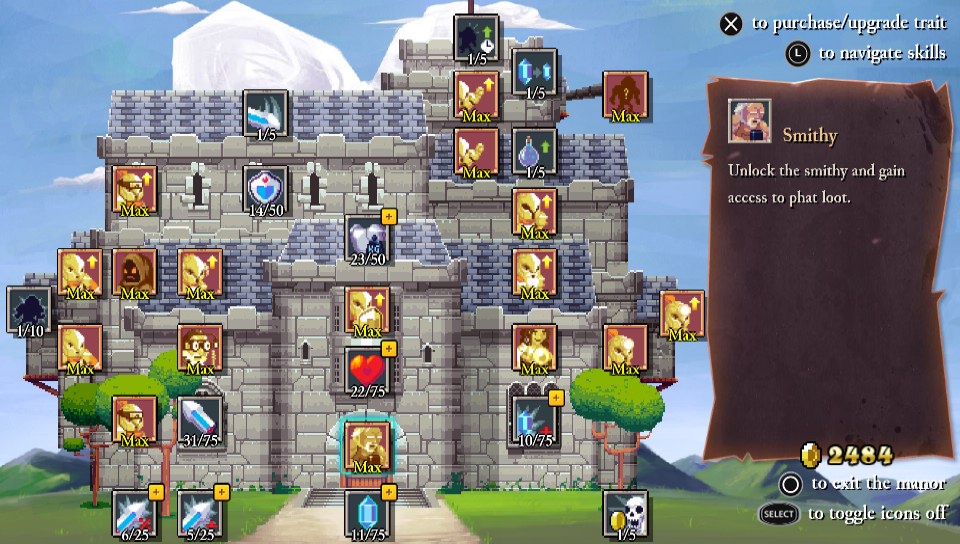
The visuals harken back to the good ol’ days of the Super Nintendo, with 16-bit style and finesse. The bright colors of the enemies let you make quick visual cues as to what attack is incoming. So many enemies are simple pallet swaps of one another, but it works well here despite the lack of variety. Funny touches like your character being nearsighted causes everything not immediately around you to become blurry, or a trait which has your hero being “The One” causing the entire background to look like your inside The Matrix are welcome additions. Overall, the visuals compliment the randomness of the gameplay well by bringing a sense of randomness on their own,
The sound department is the only area that could use some enhancements. Every part of the castle has a distinct theme, but since you’ll likely be playing through the main castle areas again and again, the music can get repetitive. Also, the sound effects of your character jumping, slashing, and battling enemies can drag on as well. The sound isn’t bad, but after a couple playthroughs it starts to get annoying.
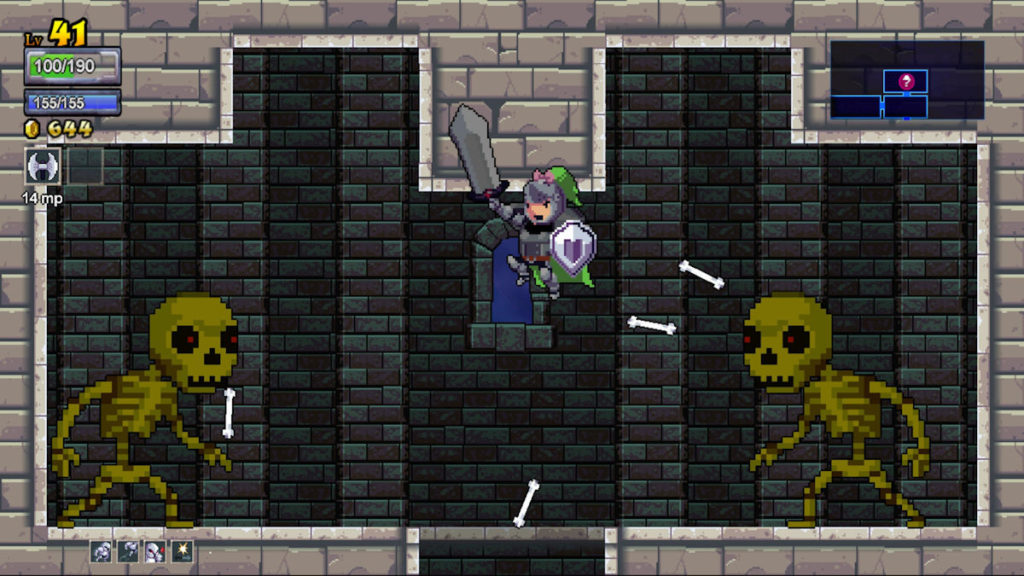
I don’t usually play through games a second time, but with Rogue Legacy I’m actually doing so. A New Game + mode is nice, but honestly there’s just so much fun, simple content here, with plenty more upgrades to unlock even after completing the game, I find myself being attracted to it again and again. The game is great, that’s for sure, but what makes it great is how approachable it is: you can pick up and play for a couple minutes or a couple hours and enjoy every second of it. Sure, the game isn’t for everyone, as those who don’t like a long burn will not find a lot to associate with, but if you enjoy your RPGs and don’t mind some repetition, Rogue Legacy is a perfect fit!
Laters,
Jsick
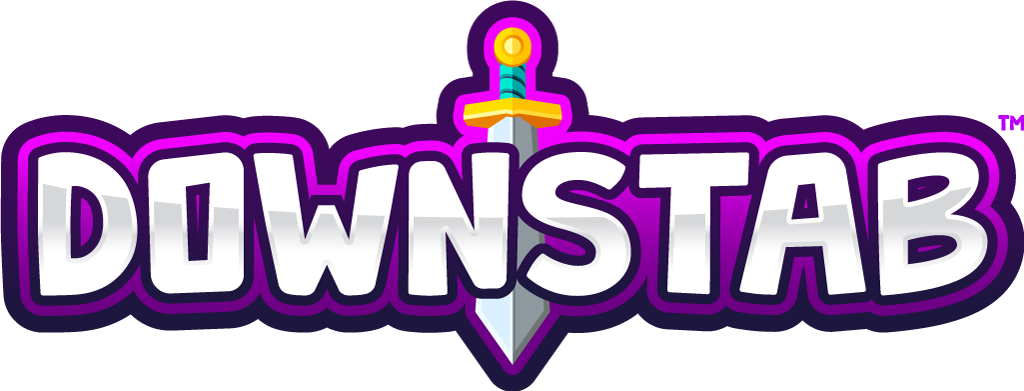
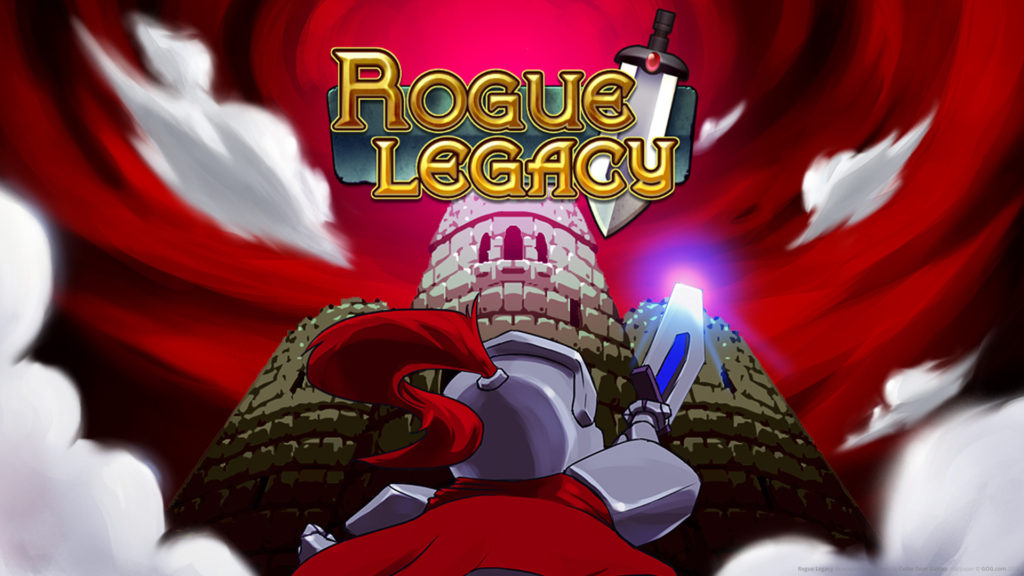





This Post Has 3 Comments
Pingback: The Swords of Ditto vs. Moonlighter: A Comparative Review – DownStab
Pingback: Hades is the New Gold Standard of Roguelikes – DownStab
Pingback: Dicey Dungeon Was Almost the Game I Was Hoping For – DownStab
Comments are closed.